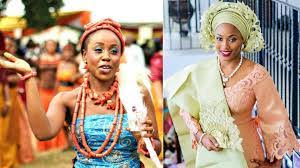There is some possibility that some Nigerian languages and cultures may have been derived from one another.
So unique are Nigerian languages that they are being adopted in foreign countries.
Nigerian languages are dated to have existed for centuries. History hasn’t allowed us to see a lot of language origins, but it is possible that some may have influenced the others.
Igbo and Yoruba are two of Nigeria’s major languages, with an estimated total of 44 million speakers in Africa combined.
Let’s take a look at some words that have similar interpretations in both languages.
- Amen: Amen, which is actually the Hebrew word for “so shall it be” is generally said at the end or during prayers. Its direct interpretation in Yoruba is “ase” while in Igbo, it is “ise”, but with different pronunciations.
- Ear: This part of the body is called “nti” in standard Igbo dialect, and called “eti” in Yoruba.
- Fever: A fever is called “iba” in both yoruba and igbo, but with different accents.
- Goat: Ewu means goat in Igbo, while Ewure means goat in Yoruba.
- God/Deity: Orisa is the name of a deity/god in Yoruba but Olisa is a name for God in Igbo.
- Mouth: This part of the body is called “enu” in Yoruba and “onu” in Igbo.
- Nose: The nose is interpreted as “imi” in Igbo and “imu” in Yoruba.
- Rooster: A rooster/chicken is called “okuko” in Igbo and “Akuko” in Yoruba.
- Slave: The textbook Igbo word for slave is “Oru” while the Yoruba word for it is “eru”.
- Stone: “Okuta” is Yoruba for stone while “Okwute” is the Igbo word for stone.
So, what do you think? Do you see any similarities, and what do you think it means?



